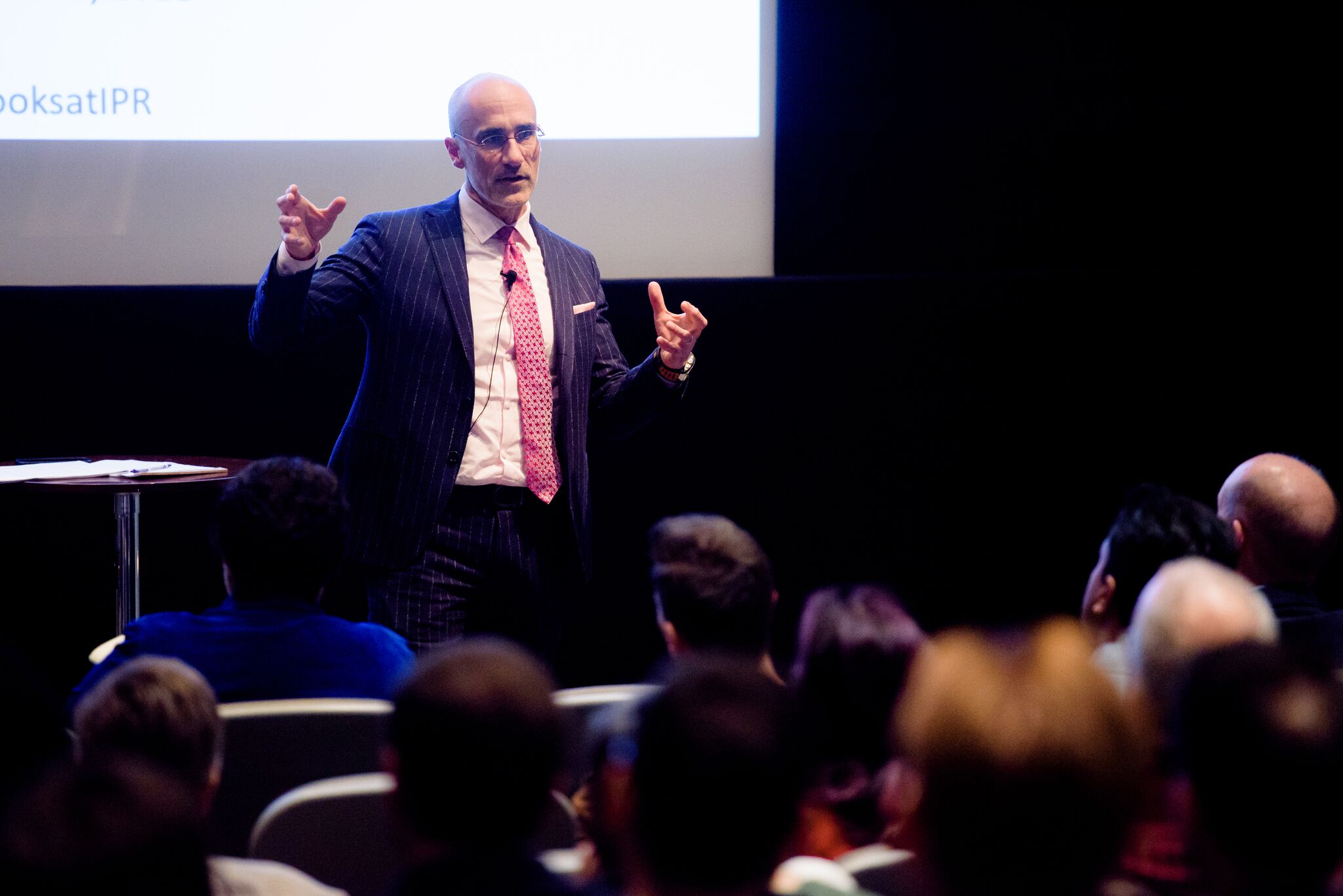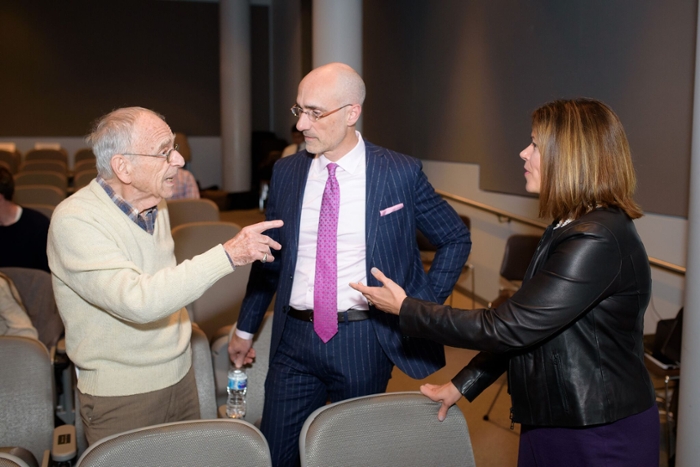How Contempt Divides America
AEI president discusses how to mend our political discourse
Get all our news
The United States is experiencing a “national crisis” because of extreme polarization, according to Arthur C. Brooks, president of the American Enterprise Institute (AEI).

Arthur Brooks, president of AEI, spoke about how contempt divides the country and what we can do to fix it.
Brooks, an economist, a former professional musician, and the Beth and Ravenel Curry Scholar in Free Enterprise, delivered IPR’s Distinguished Public Policy Lecture on November 7 on Northwestern University’s Evanston Campus.
“I greatly admire the work that Arthur’s done at AEI,” said IPR Director Diane Whitmore Schanzenbach. “He has a deep commitment to serve others, especially those at the margins of society.”
In his talk, Brooks outlined how we can bring our country together, regardless of our political beliefs—the topic of his forthcoming book, Love Your Enemies: How Decent People Can Save America from the Culture of Contempt (HarperCollins, 2019).
“The biggest problem we have is not that we agree too little, it’s that we have too many problems treating each other with decency and respect in the way that we disagree,” Brooks said.
For Brooks, disagreement is actually positive for American political discourse.
“I don’t think agreement is even good, I believe in disagreement,” he said. “But I believe we can disagree and do it better.”
The problem is contempt for those we disagree with, according to Brooks.
“Contempt is to say, ‘You are beneath consideration,’” Brooks explained. “That contempt pulls us apart as a nation.”
Politicians play into this, he argued. Progressive politicians tell progressive audiences that they are right and the other side is evil. The same is true of conservative politicians.
“They just scratch the confirmation bias of the audience,” Brooks said.

IPR economist Burt Weisbrod, left, and IPR director Diane Whitmore Schanzenbach, right, chat with Brooks, who
mentioned Weisbrod as an academic influence.
But how do we challenge contempt?
Brooks believes that each of us can help to mend America’s political discourse by meeting contempt with warm-heartedness. There are three things each of us can do, he said, to become part of the solution.
First, he said, we each need to go out and make friends with someone we disagree with. He urged the audience to listen to each other and remember to be grateful.
Second, while social media is a place that breeds contempt, he encourages people to find the places of hate on Twitter and meet that contempt with warm-heartedness. In other words, respond to hateful social media comments with kindness rather than feeding negative comments with more negativity.
Third, Brooks advised the audience that they should refuse to be used by those in power who use contempt to their own benefit. Those in power using contemptuous rhetoric do so to divide the country, he said.
“We need to be a beacon of hope and light for the world,” Brooks said. “There are too many people in the world who need to be lifted up from the margins, and we have the capability to do great good. But we’re not going to do it if we’re not together.”
Arthur C. Brooks is president of the American Enterprise Institute, the Beth and Ravenel Curry Scholar in Free Enterprise, and host of the podcast, “The Arthur Brooks Show.” Read more about him here.
Photo by Jason Brown.
Published: December 10, 2018.